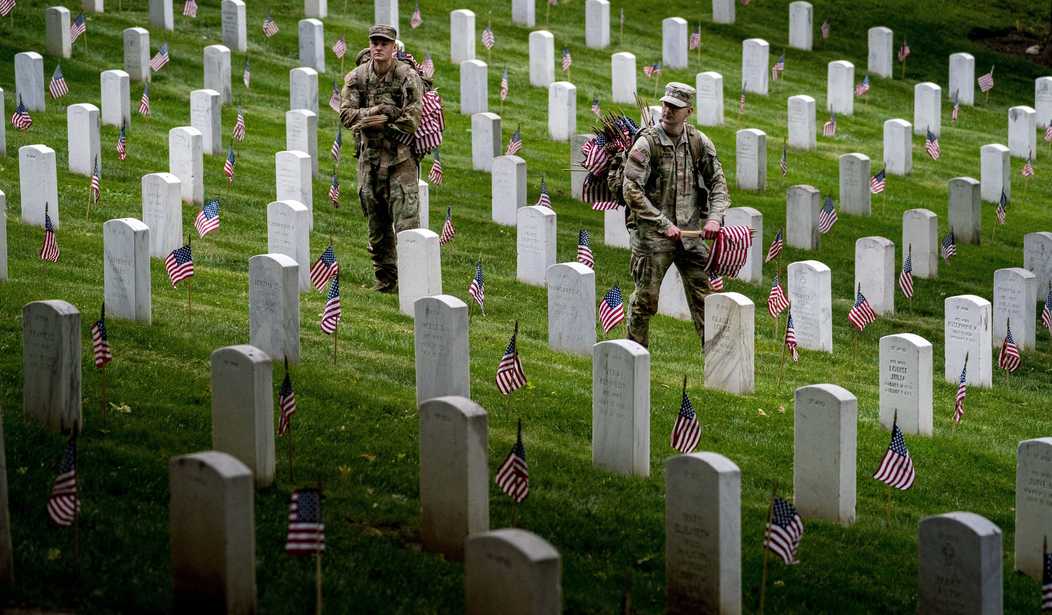In Flanders fields the poppies blow
Between the crosses, row on row,
That mark our place; and in the sky
The larks, still bravely singing, fly
Scarce heard amid the guns below.
These lines, penned by a battlefield surgeon during the Second Battle of Ypres in 1915, still catch in the throat like smoke. Lt. Col. John McCrae wasn’t writing from safety. He wrote this after watching his friend die in the mud, then helped bury him with a wooden cross and a helmet for a marker.
The poppies that grow today among the Arlington, Normandy, or Anzio graves are descendants of these lines. They flourish in blood-rich soil. They are not symbols of peace but flowers of remembrance born from war.
This is how Memorial Day should begin, not with fireworks but with silence, with the imagined sound of larks singing against the distant echo of artillery. This is not just in Flanders but also in Fallujah. This is not just in Belgium but also in every small town that lost a son or daughter and received a folded flag in return.
We are the Dead. Short days ago
We lived, felt dawn, saw sunset glow,
Loved and were loved, and now we lie
In Flanders fields.
This is the soul of the poem and of Memorial Day.
The dead speak.
They reminded us they were like us: alive, breathing, dreaming, afraid. They went to school dances, kissed loved ones goodbye at train stations, and sent letters home with jokes and poems of their own.
“Short days ago,” they lived.
That line hits hardest. These weren’t mythical warriors. They were human. And they were young. Their stories ended early, not by fate, but by choice, choosing duty over safety, loyalty over comfort, and country over self.
That’s not romanticism. That’s reality. In every war, from Gettysburg to Kandahar, men and women have stepped into fire not for glory but because they believed someone had to.
And now they lie on battlefields abroad and in peaceful cemeteries here at home. Their lives paused forever while ours continued.
Take up our quarrel with the foe:
To you from failing hands we throw
The torch; be yours to hold it high.
Here’s where McCrae’s verse changes. It moves from remembrance to charge.
The fallen are not asking for pity.
They are handing us the torch, the responsibility to continue the work they died trying to complete.
This stanza turns Memorial Day from a quiet tribute into a moral imperative: to live in a way that honors them and protects the values they died defending: liberty, unity, and truth.
Holding the torch high doesn’t just mean military service. It implies integrity in how we raise our families, lead our communities, and guard the foundations of the republic.
If ye break faith with us who die
We shall not sleep, though poppies grow
In Flanders fields.
The closing words are a warning, not a whisper.
Breaking faith with the dead isn’t just about forgetting their names. It’s about forgetting what they died for. When we make freedom cheap, treat patriotism like a punchline, or trade justice for convenience, we dishonor them.
They don’t rest in peace if we live in ignorance. The poppies grow anyway.
That’s the sting. Time moves forward.
The graves remain. But if we fail to remember and live up to their sacrifice, then the poem ends not in beauty but in betrayal.
So this Memorial Day, remember the poppies, but remember the quarrel, too.
Remember the Dead: but hold the torch.
And above all, do not break faith.
Editor’s Note: To celebrate the passage of the tremendous One Big, Beautiful Bill, we’re offering a fire sale on VIP memberships!
Join us in the fight against the radical left today and support our reporting as President Trump continues to usher in the Golden Age of America. Use promo code POTUS47 at checkout to get 74% off!










Join the conversation as a VIP Member